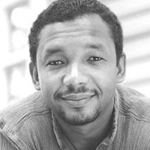

An investigation found that members of the mob likely included the Ku Klux Klan. Grooms, author of "Bombingham" and "Trouble No More," has written a gripping and disturbing book that is loosely based on the brutal killings of two African-American couples - Roger and Dorothy Malcom, and George and Mae Murray Dorsey - in 1946 at Moore's Ford Bridge in Walton County, Georgia. He thinks the nation is haunted by the racial injustices that happened decades ago and continue today when a young woman is run down and killed while protesting at a neo-Nazi rally in Charlottesville, Virginia, and when nine black members of a Bible study group are murdered by a lone white gunman bent on starting a race war. "If I had my way, it would have been published 10 years ago," he said. It's likely to resonate with readers who even remotely follow what is happening across the United States. In a divided nation, perhaps the timing of the release of his latest book couldn't be better, although Grooms didn't plan it that way. I don't think we've actually dealt with the question of racial violence.


"Does it look like it does today?" asked Grooms, a professor of creative writing at Kennesaw State University.

And for Walter, the war was just beginning.What does a fully redeemed United States look like? In the streets of Birmingham, ordinary citizens risked their lives to change America. From a tortured past lingered questions of faith, and a terrible family crisis found its climax as the city did the same. As the great movement swelled around them, the Burkes faced tremendous obstacles of their own. Their paper route never took them to the white areas of town. Walter and Lamar were always aware of the terms of segregation-the horrendous rules and stifling reality. The juxtaposition is so powerful-between war-torn Vietnam and terror-filled "Bombingham"-that he is drawn back to the summer that would see his transition from childish wonder at the world to his certain knowledge of his place in it. But all he can think of is his childhood friend Lamar, the friend with whom he first experienced the fury of violence, on the streets of Birmingham, at the height of the Civil Rights Movement. In his barracks, Walter Burke is trying to write a letter to the parents of a fallen soldier, an Alabama man who died in a muddy rice paddy.


 0 kommentar(er)
0 kommentar(er)
